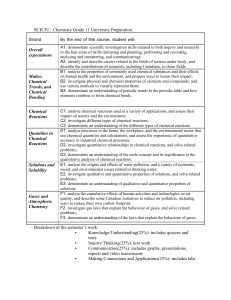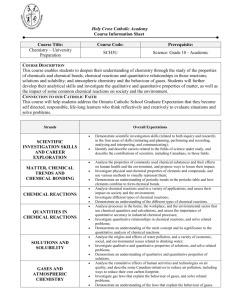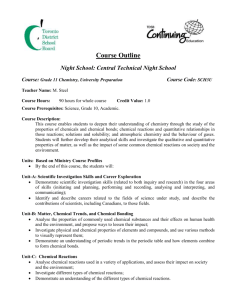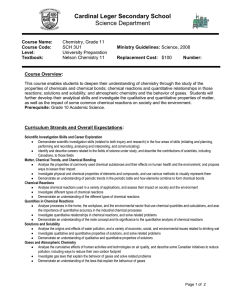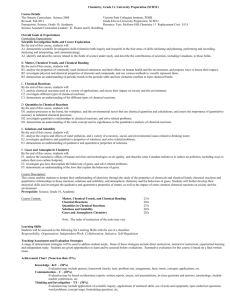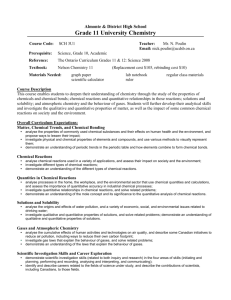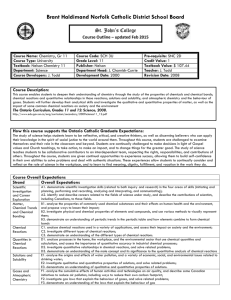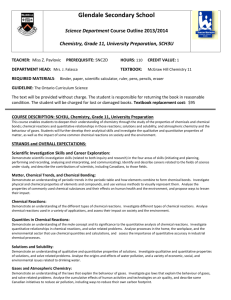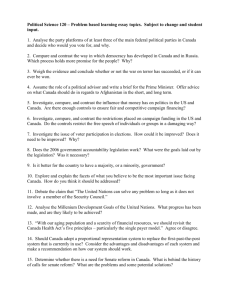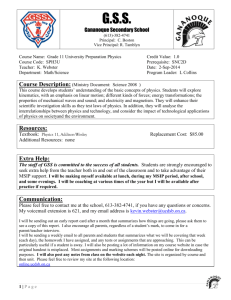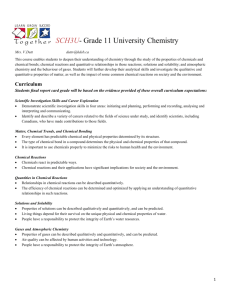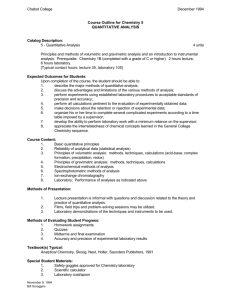SCH3U1 overview - St. Mary CSS Chemistry11U 2010
advertisement
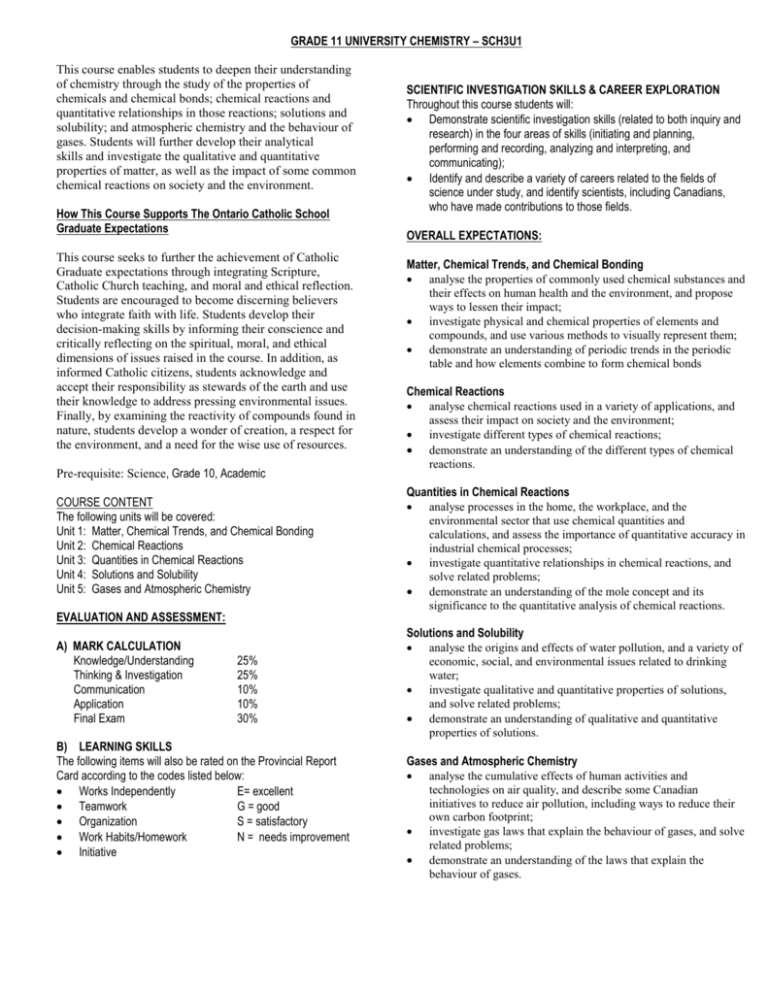
GRADE 11 UNIVERSITY CHEMISTRY – SCH3U1 This course enables students to deepen their understanding of chemistry through the study of the properties of chemicals and chemical bonds; chemical reactions and quantitative relationships in those reactions; solutions and solubility; and atmospheric chemistry and the behaviour of gases. Students will further develop their analytical skills and investigate the qualitative and quantitative properties of matter, as well as the impact of some common chemical reactions on society and the environment. How This Course Supports The Ontario Catholic School Graduate Expectations This course seeks to further the achievement of Catholic Graduate expectations through integrating Scripture, Catholic Church teaching, and moral and ethical reflection. Students are encouraged to become discerning believers who integrate faith with life. Students develop their decision-making skills by informing their conscience and critically reflecting on the spiritual, moral, and ethical dimensions of issues raised in the course. In addition, as informed Catholic citizens, students acknowledge and accept their responsibility as stewards of the earth and use their knowledge to address pressing environmental issues. Finally, by examining the reactivity of compounds found in nature, students develop a wonder of creation, a respect for the environment, and a need for the wise use of resources. Pre-requisite: Science, Grade 10, Academic COURSE CONTENT The following units will be covered: Unit 1: Matter, Chemical Trends, and Chemical Bonding Unit 2: Chemical Reactions Unit 3: Quantities in Chemical Reactions Unit 4: Solutions and Solubility Unit 5: Gases and Atmospheric Chemistry EVALUATION AND ASSESSMENT: A) MARK CALCULATION Knowledge/Understanding Thinking & Investigation Communication Application Final Exam 25% 25% 10% 10% 30% B) LEARNING SKILLS The following items will also be rated on the Provincial Report Card according to the codes listed below: Works Independently E= excellent Teamwork G = good Organization S = satisfactory Work Habits/Homework N = needs improvement Initiative SCIENTIFIC INVESTIGATION SKILLS & CAREER EXPLORATION Throughout this course students will: Demonstrate scientific investigation skills (related to both inquiry and research) in the four areas of skills (initiating and planning, performing and recording, analyzing and interpreting, and communicating); Identify and describe a variety of careers related to the fields of science under study, and identify scientists, including Canadians, who have made contributions to those fields. OVERALL EXPECTATIONS: Matter, Chemical Trends, and Chemical Bonding analyse the properties of commonly used chemical substances and their effects on human health and the environment, and propose ways to lessen their impact; investigate physical and chemical properties of elements and compounds, and use various methods to visually represent them; demonstrate an understanding of periodic trends in the periodic table and how elements combine to form chemical bonds Chemical Reactions analyse chemical reactions used in a variety of applications, and assess their impact on society and the environment; investigate different types of chemical reactions; demonstrate an understanding of the different types of chemical reactions. Quantities in Chemical Reactions analyse processes in the home, the workplace, and the environmental sector that use chemical quantities and calculations, and assess the importance of quantitative accuracy in industrial chemical processes; investigate quantitative relationships in chemical reactions, and solve related problems; demonstrate an understanding of the mole concept and its significance to the quantitative analysis of chemical reactions. Solutions and Solubility analyse the origins and effects of water pollution, and a variety of economic, social, and environmental issues related to drinking water; investigate qualitative and quantitative properties of solutions, and solve related problems; demonstrate an understanding of qualitative and quantitative properties of solutions. Gases and Atmospheric Chemistry analyse the cumulative effects of human activities and technologies on air quality, and describe some Canadian initiatives to reduce air pollution, including ways to reduce their own carbon footprint; investigate gas laws that explain the behaviour of gases, and solve related problems; demonstrate an understanding of the laws that explain the behaviour of gases.
